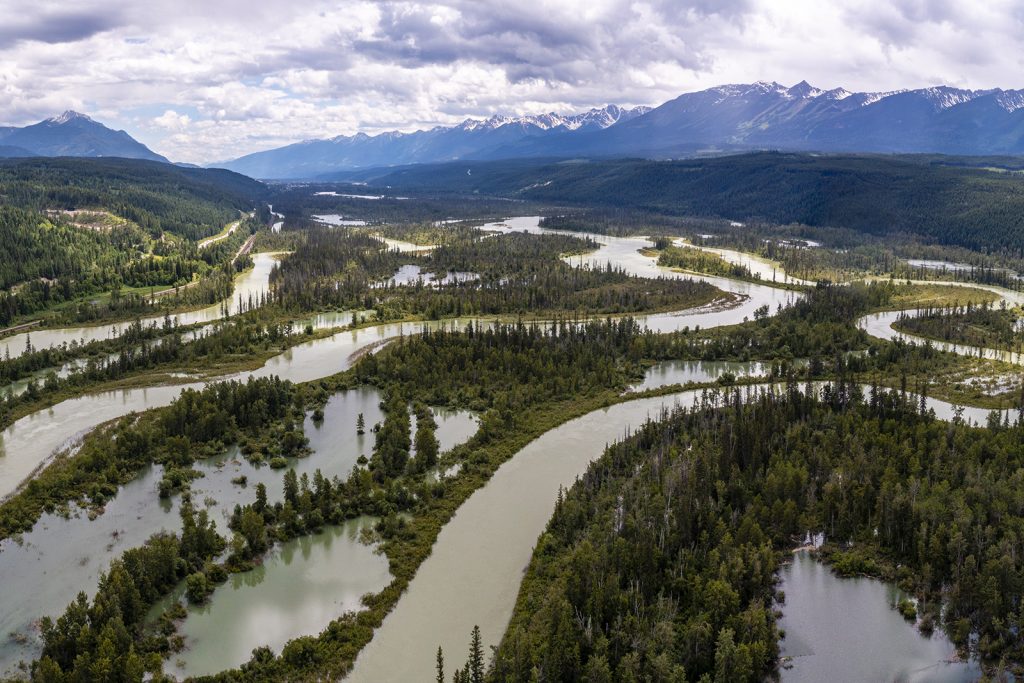Photo Credit: David Moskowitz
Originally published in Columbia Riverkeeper “Currents” Issue 1, 2025
For the River
The Trump administration is dismantling America’s democracy. Fundamental human rights are under attack, along with the U.S. Constitution. The list goes on and on. Our team is fighting tooth and nail to activate people and stand in solidarity with Tribes and communities under attack.
Did I mention this year is Columbia Riverkeeper’s 25th anniversary?
Our plan: take 25 years of collective victories powered by Tribes and river communities to inspire hope in dark times. And get out on the water. Revel in every moment that friends and family come together and cast a line in the Columbia. Delight in the laughter of kids splashing in the river on a hot day. Draw strength when gazing at the river. Because now is the time to find inspiration—and act.
Columbia Riverkeeper’s approach is rooted in relationship-building and working in solidarity with Tribal Nations to protect and restore the Columbia River. The top goals in our 2025–2027 Strategic Plan include:
- Working in solidarity with Tribes and frontline river communities to protect and restore clean water, restoring abundant and harvestable salmon, and transitioning from fossil fuels to energy justice on the Columbia;
- Inspiring people to care for and use the Columbia River, and
- Implementing anti-racist strategies and embracing the many ways Columbia Riverkeeper’s mission and social justice intersect.
Highlights of our work in the first half of the year include:
- Enforcing the Clean Water Act. We filed two new legal actions and favorably settled two cases brought in 2024, including a lawsuit holding a major source of industrial agriculture pollution accountable.
- Stopping new nuclear reactors. We worked in solidarity with the Confederated Tribes of Umatilla Indian Reservation, nonprofits, and community members to thwart 13 proposals to weaken or overturn the State of Oregon’s ballot initiative banning new nuclear development.
- Advancing fish recovery. Salmon recovery in the Lewis River, an important tributary to the Columbia, took an important step forward recently, when the Federal Energy Regulatory Commission (FERC) approved new deadlines for PacifiCorp to build fish passage at Lewis River dams, which currently block salmon and steelhead from 57 miles of spawning and rearing habitat.
Our efforts surpass one administration. Let us turn to one another to find hope and persevere. And never lose sight of our shared humanity and ties to the life-giving force that is the Columbia River.
Onward,

Lauren Goldberg
Executive Director
1. “Anti-racism” is defined as “the active process of identifying and eliminating racism by changing systems, organizational structures, policies and practices and attitudes, so that power is redistributed and shared equitably. . . .” See University of Oregon’s Research Guides, https://researchguides.uoregon.edu/antiracism.

